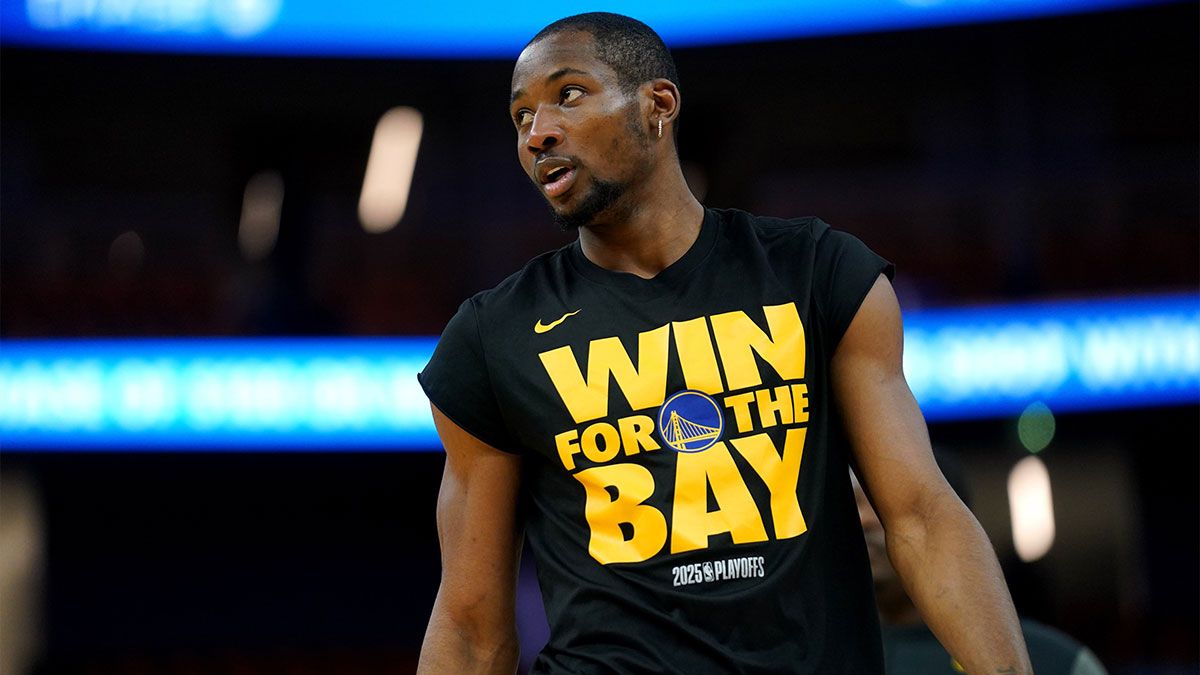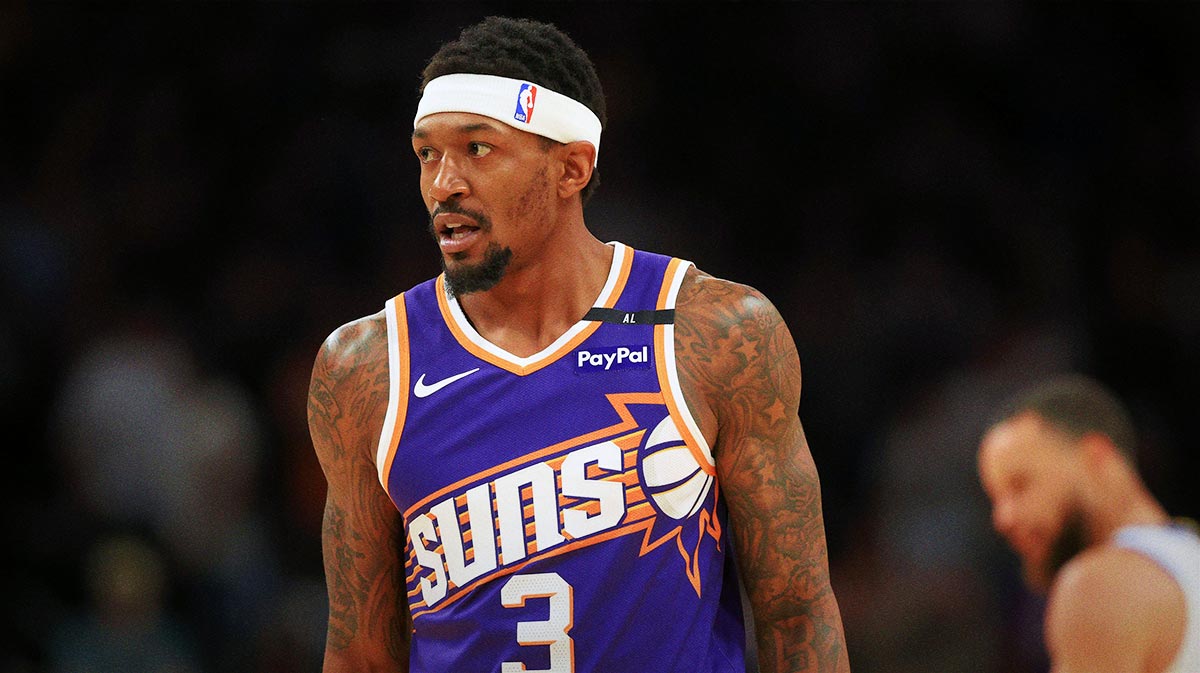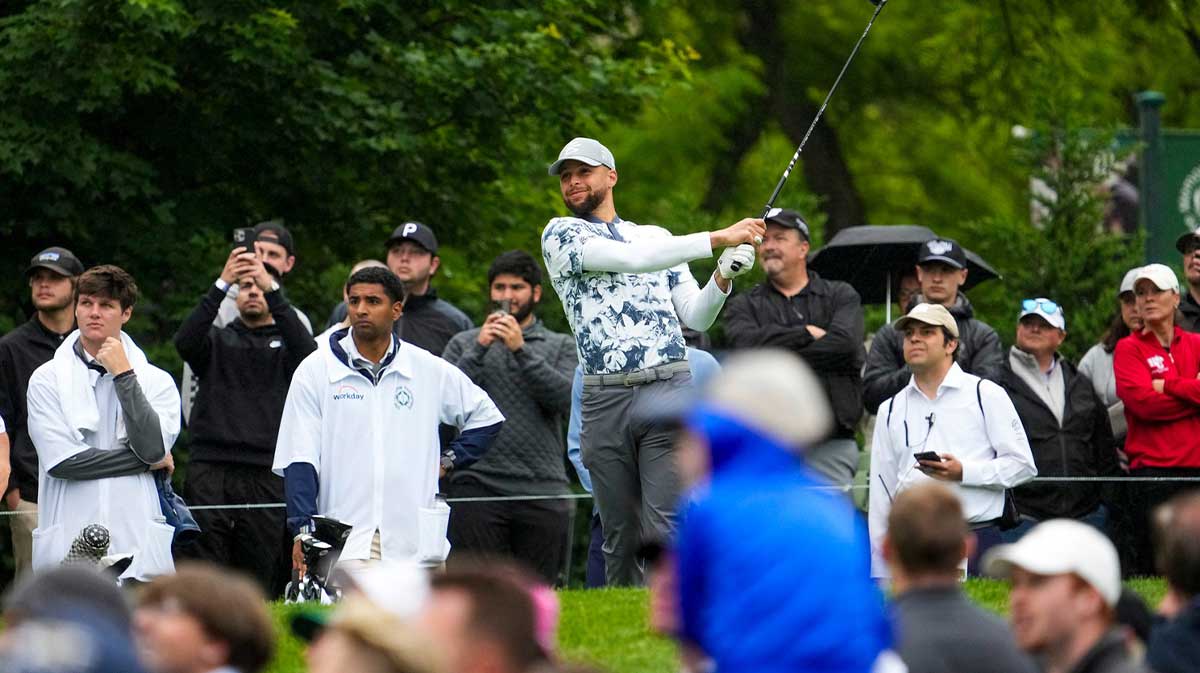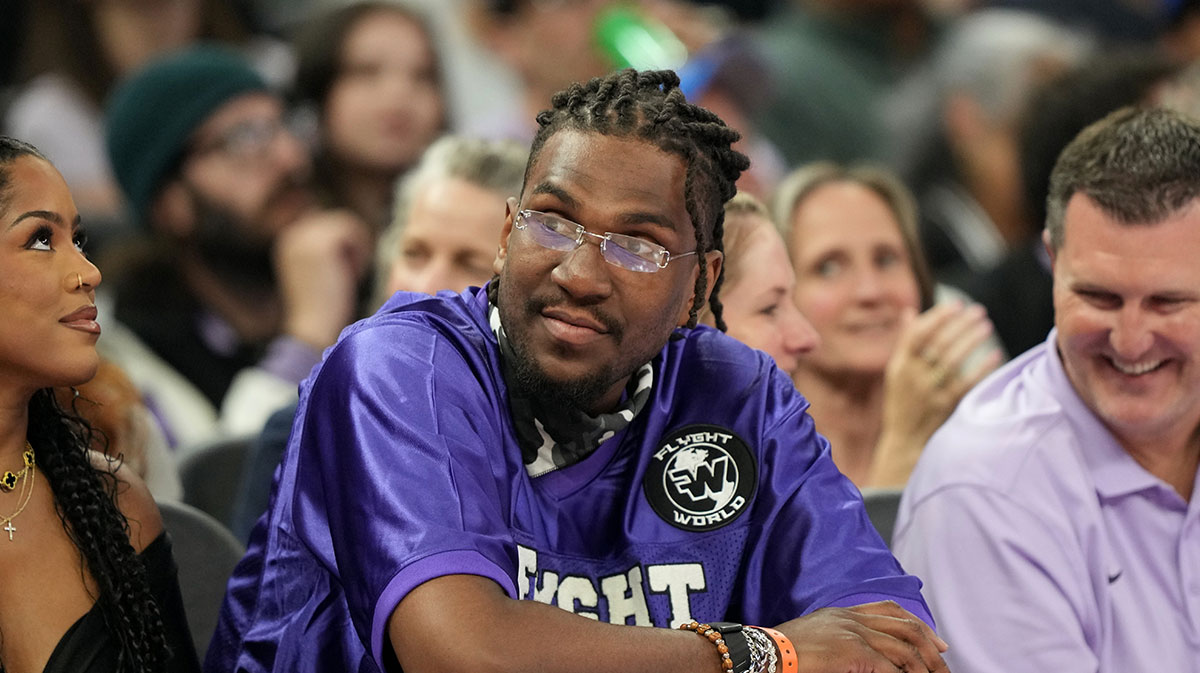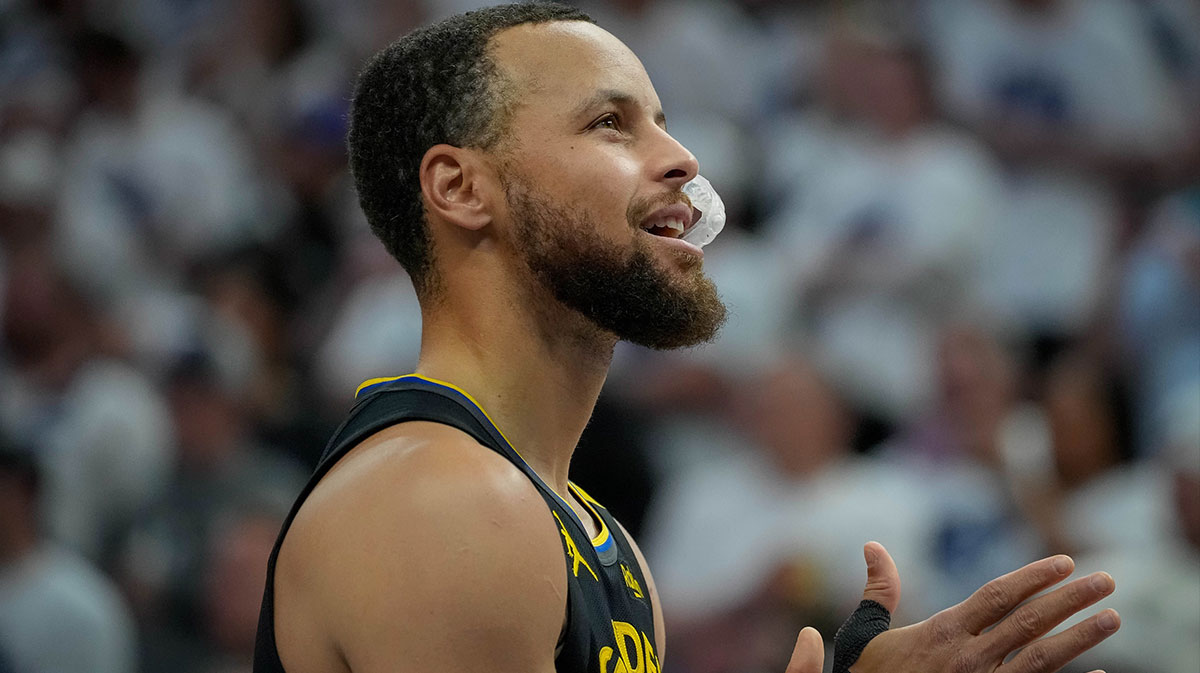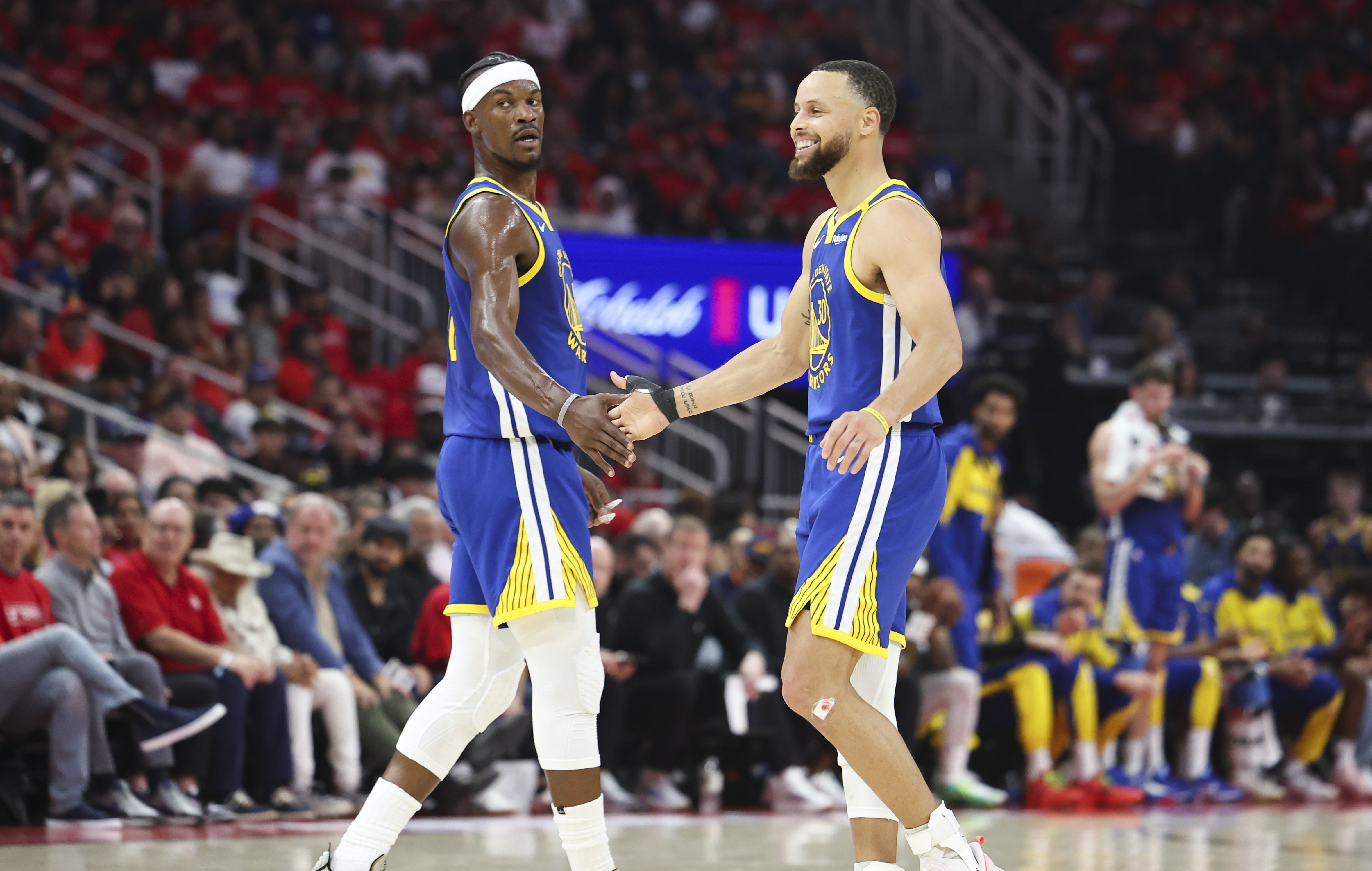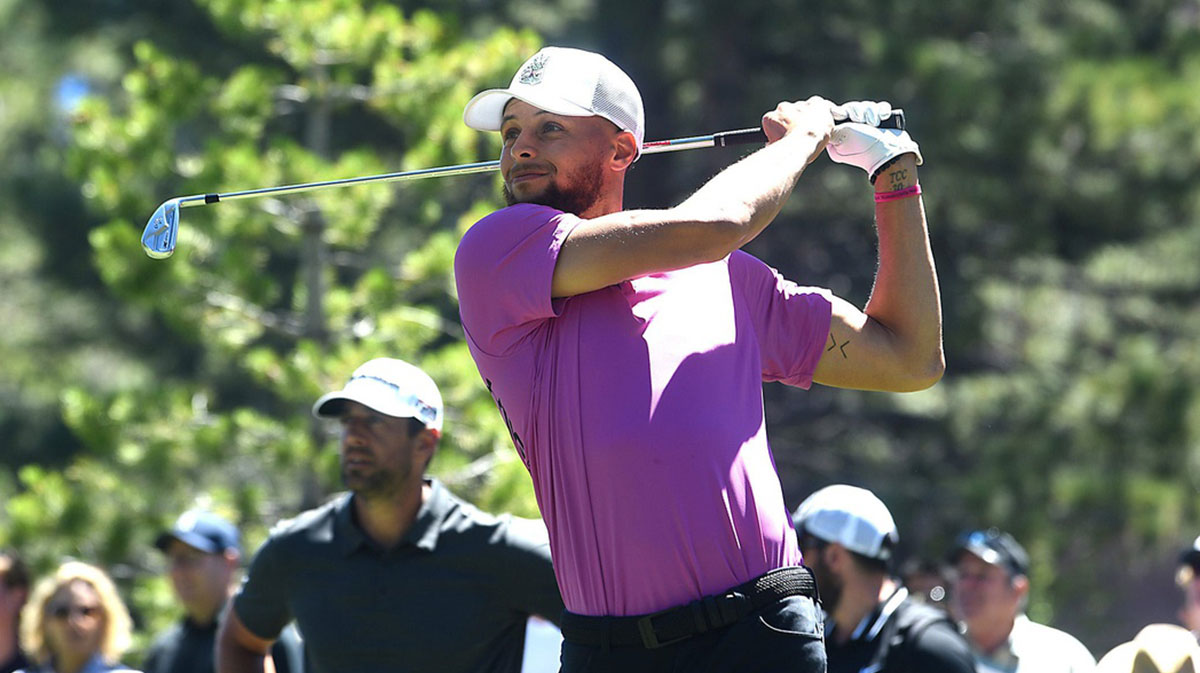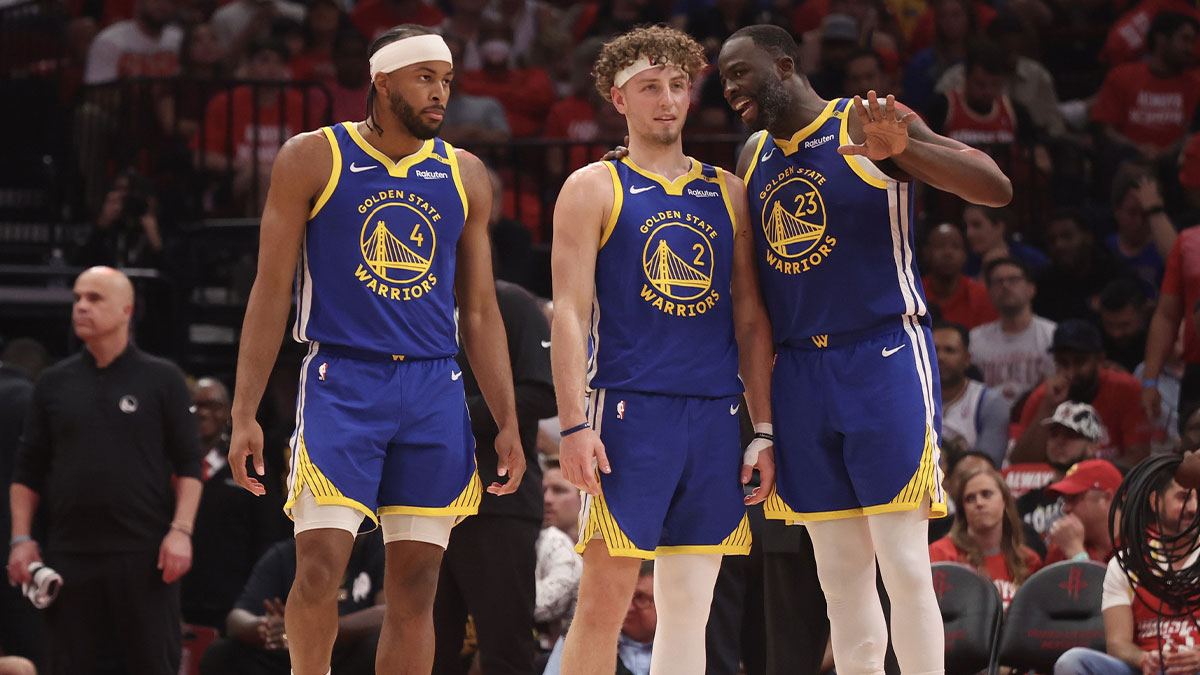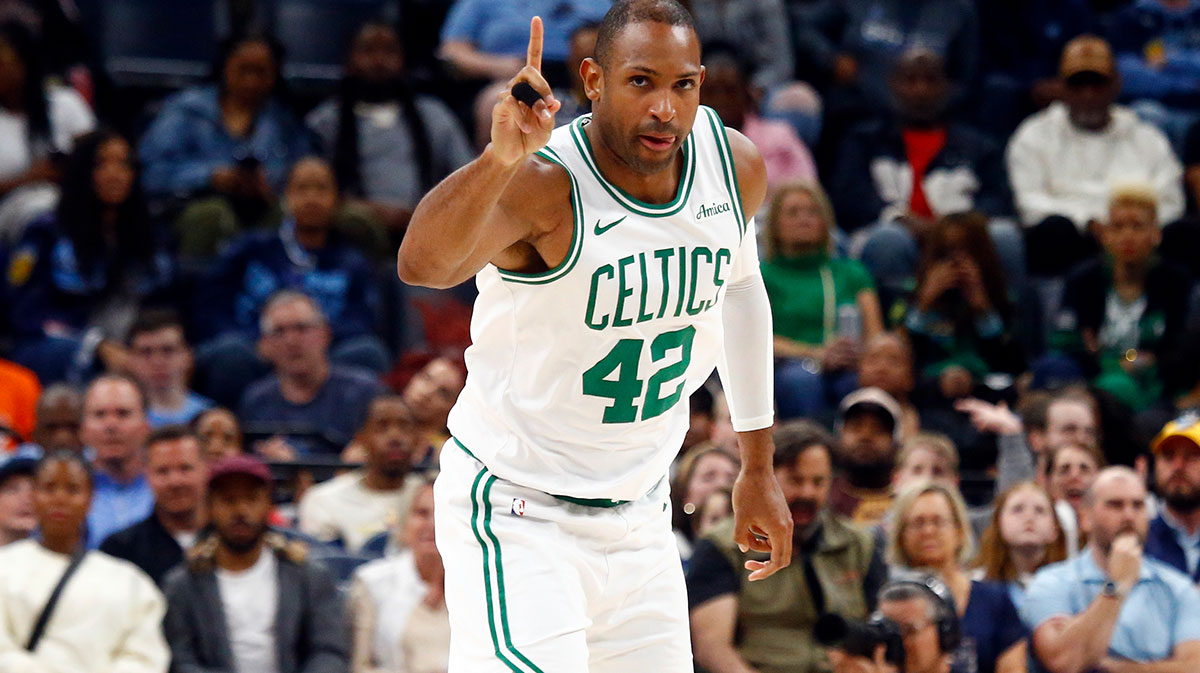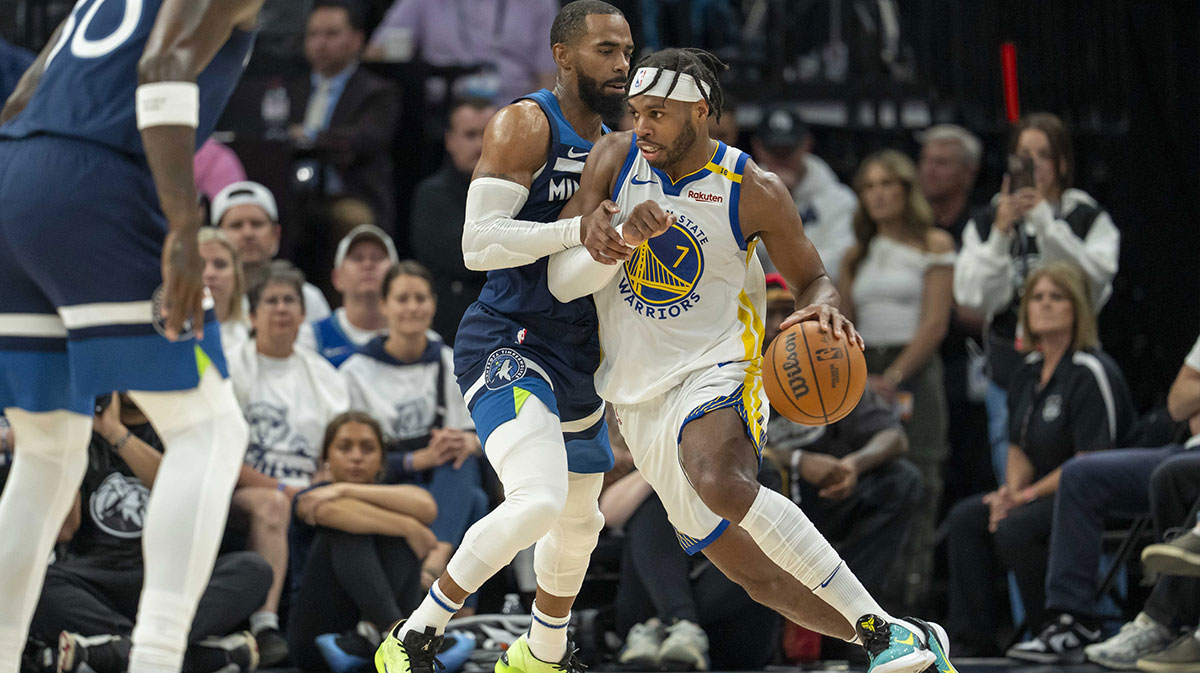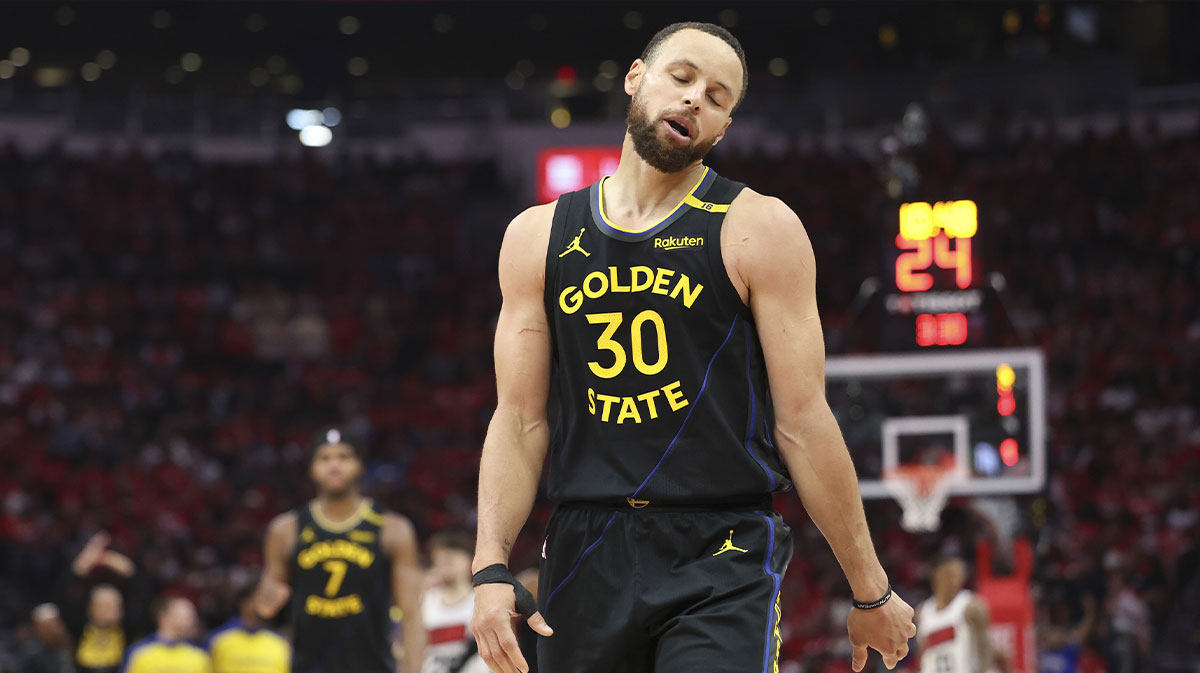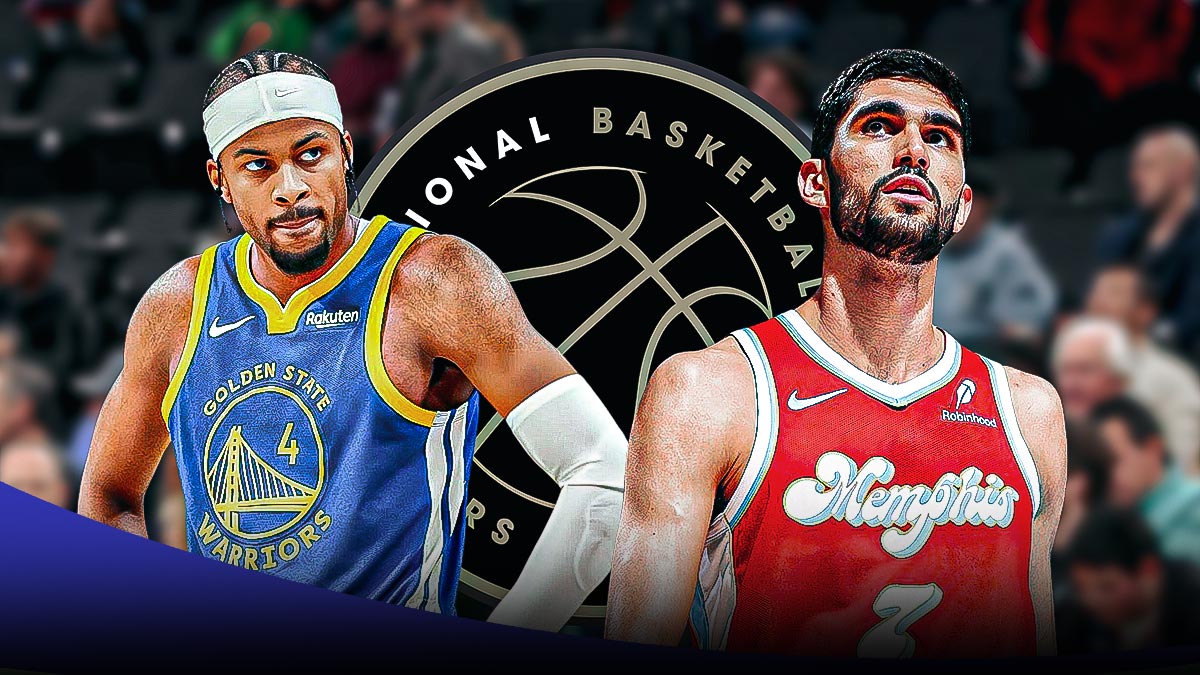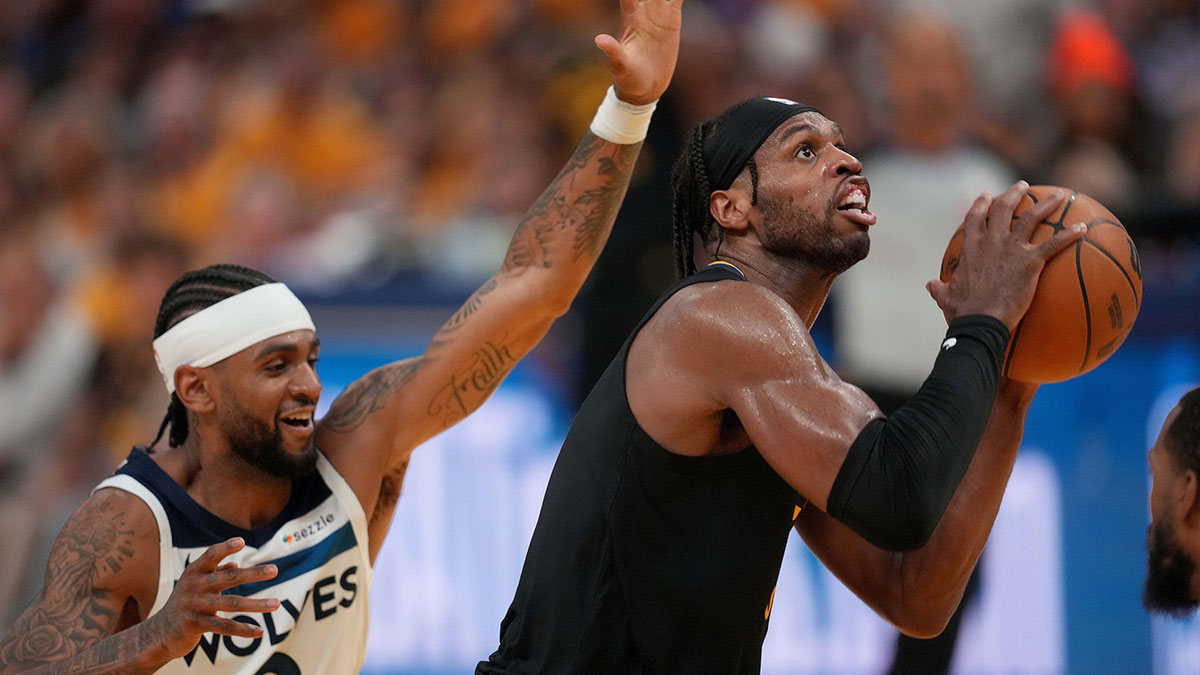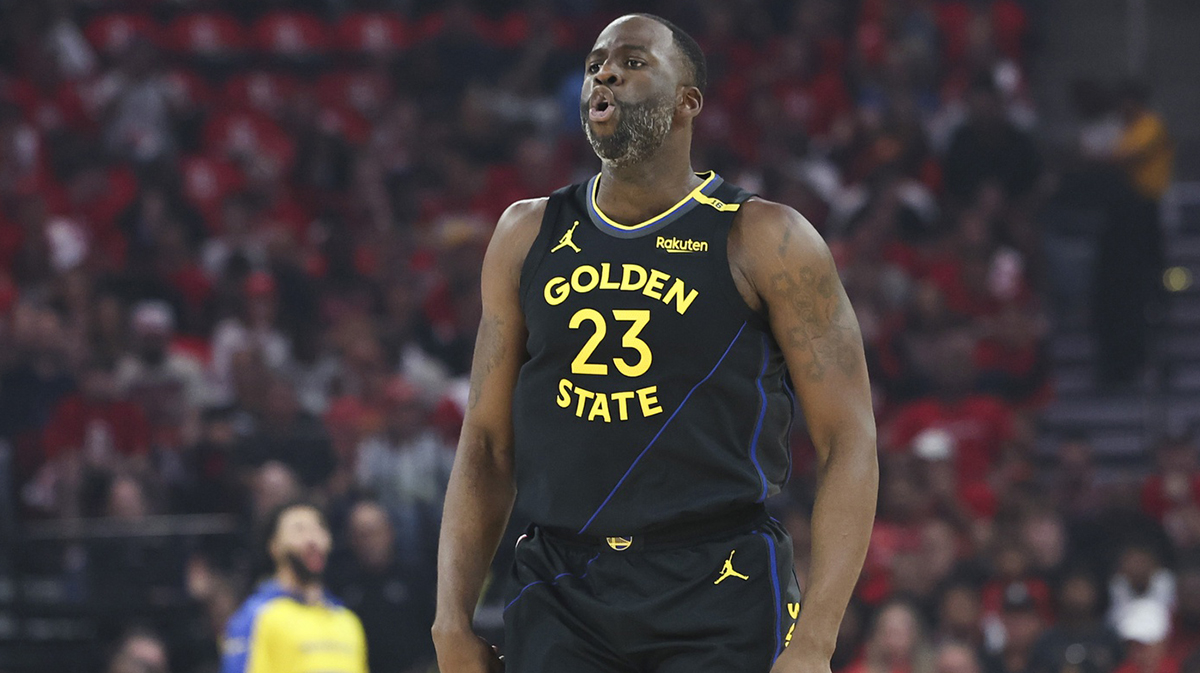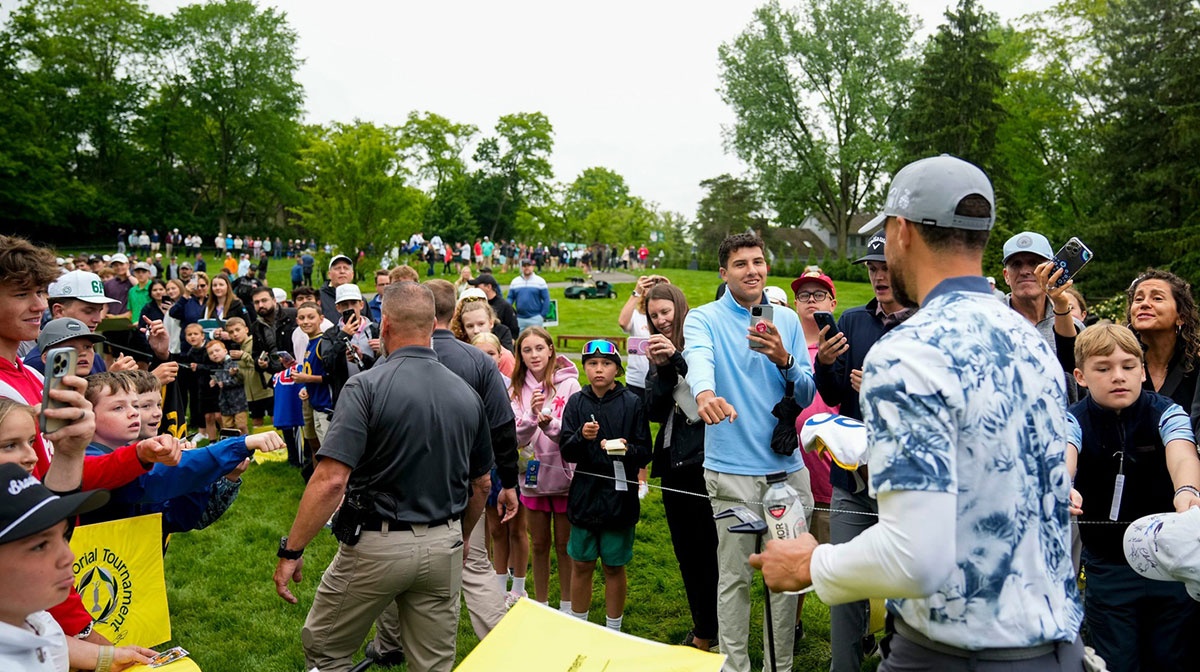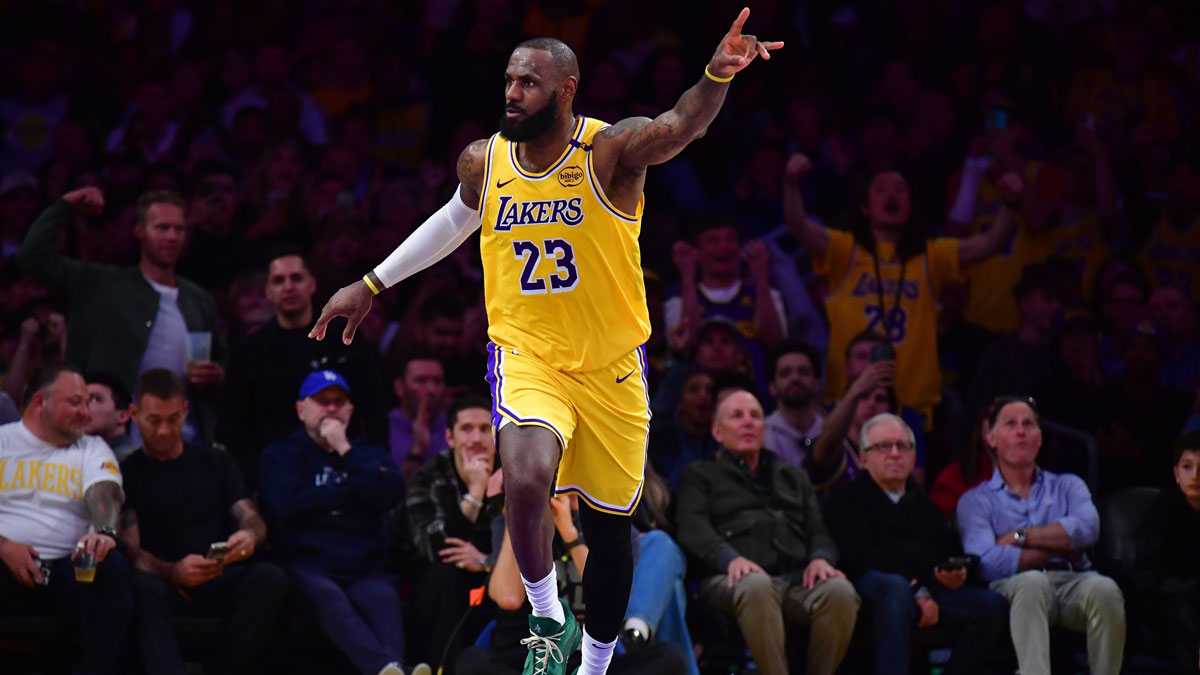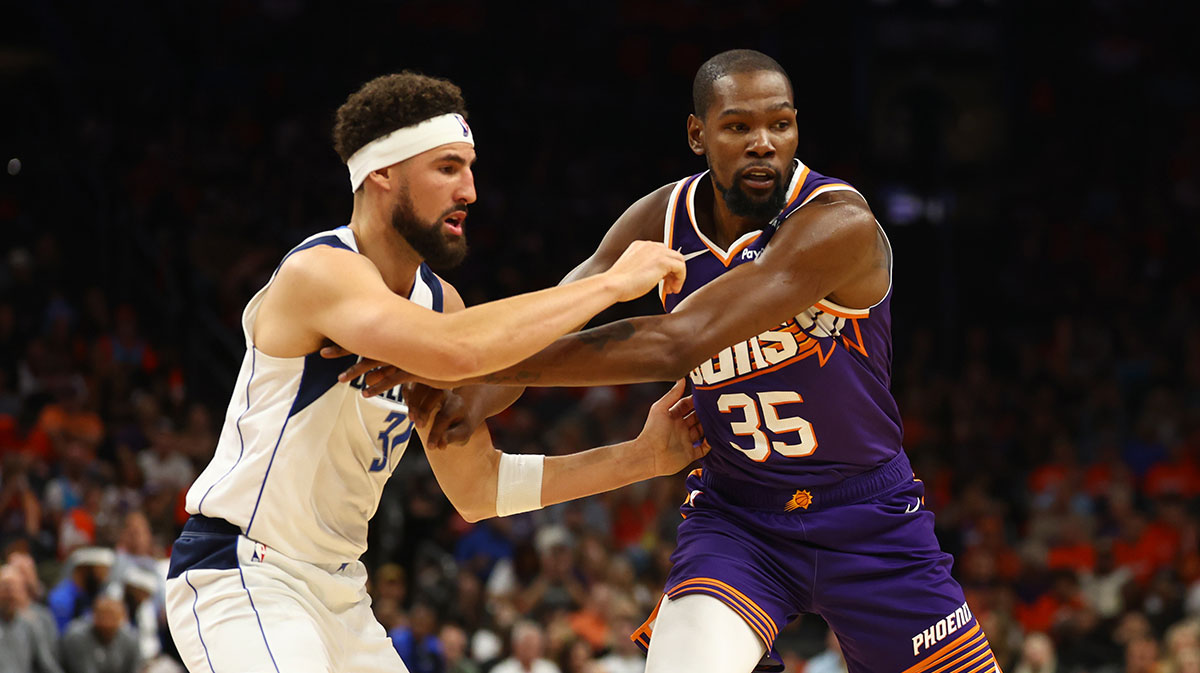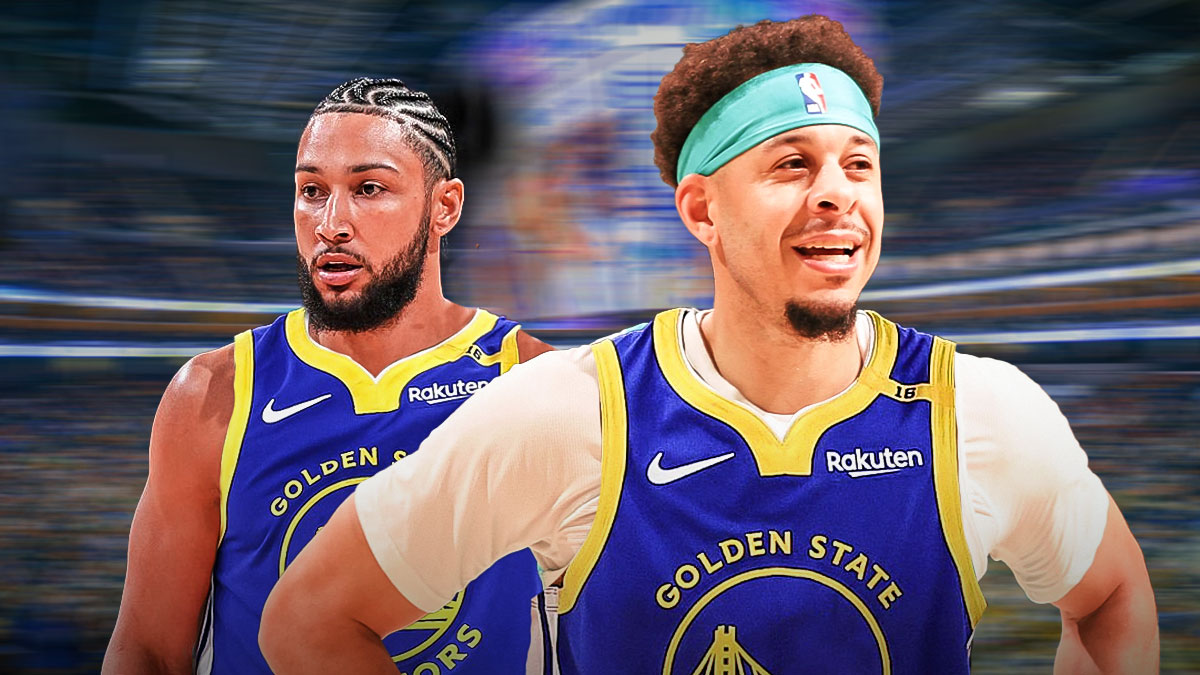Training camp for the 2022-23 season tips off league-wide in a few days, which can only mean one thing: A deluge of NBA player rankings from legacy media outlets. Most prominent among them, of course, is ESPN's NBArank, back for a 12th consecutive year to fete basketball's best players and anger fan bases across the NBA landscape. ESPN released Nos. 100-25 in this season's edition of NBArank on Tuesday, with four Golden State Warriors making the cut.
Here are the three most shocking takeaways from ESPN's placing of Jordan Poole (No. 55), Draymond Green (No. 43), Klay Thompson (No. 37) and Andrew Wiggins (No. 32).
Most Shocking Warriors results from ESPN's 2022-23 NBArank
2. Klay Thompson in the top-40
An unfinished list of notable players who fell below Thompson's No. 37 in NBArank: Zion Williamson, LaMelo Ball, Darius Garland, Shai Gilgeous-Alexander Deandre Ayton and Jaren Jackson Jr. All of those guys are significantly younger than Thompson, obviously, and all but Garland—coming off an All-Star season in which he established himself as a game-changing playmaker offensively—have much to prove in 2022-23.
But there's no denying that Williamson and Jackson, both facing uncertainty due to injury, make a more sizable impact than post-prime Thompson when healthy. Ball is poised to put up massive individual numbers after a dispiriting summer for the Charlotte Hornets, while Ayton could reestablish himself as a fixture for the Phoenix Suns in wake of a vexing playoff finish and contentious contract talks. Gilgeous-Alexander, unfortunately, is stuck in basketball purgatory with the Oklahoma City Thunder following Chet Holmgren's season-ending injury.
Maybe ESPN's confidence in Thompson stems from the notion most players recovering from his injuries typically need a full season of re-acclimation before reaching their prior form.
That could be especially true for Thompson not just because he suffered both a torn ACL and ruptured Achilles tendon before making his long-awaited return in January, but also because he missed a full two-and-a-half seasons of NBA basketball. It makes logical sense that he'd be better in 2022-23 than last season, especially after Thompson flipped the proverbial switch in the back half of the NBA Finals, repeatedly stymying Jaylen Brown and Jayson Tatum as a one-on-one defender.
But Thompson is long past capable of being Golden State's “stopper” on a nightly basis, and it bears reminding he finished the Finals with an ugly 45.5 effective field goal percentage. The Warriors' offensive rating in the playoffs was 10.5 points lower with him on the court, per Cleaning The Glass, by far the worst among Steve Kerr's top-eight players.
The off-ball gravity Thompson provides as a shooter remains surpassed only by his fellow Splash Brother's. His 41.0% accuracy on catch-and-shoot triples in the postseason—several points better than his disappointing regular-season mark—is further indication that Thompson is still regaining his comfort on the floor, and it stands to reason his shot selection will be better after forcing up contested jumper after contested jumper last season while striving to find his footing.
Slotting Thompson in the top-40 suggests he'll once again cement himself this season as a truly elite role player over both the 82-game grind and under the postseason pressure cooker. It's not impossible by any stretch. For a veteran with a pair of significant lower-body injuries in his recent past and whose peak two-way utility hinged much on his ability to check star point guards and wings alike near an All-Defense level, though, expectations should be kept in relative check.
A ranking 10 or so spots lower would've better reflected the unknowns still surrounding Thompson's game.
1. Draymond Green as Warriors' fourth-best player, at least 18 slots lower than Rudy Gobert
Green is nearly as influential to Golden State's defensive ethos as Stephen Curry is on the other side of the ball. Everything the Warriors do defensively hinges on his innate ability to both keep fires from blazing and quickly extinguish them once they do. Green has a legitimate case as the best help defender ever, and proved in the Finals he still has the juice to lock down superstars man-to-man.
Green's offensive functionality hinges much of more on the presence of his teammates in Kerr's singular movement-based system than the most biased Dubs fans and his biggest proponents like to admit. If he was enough of a liability on that end during Curry's Game 4 masterpiece to be benched midway through the fourth quarter, it's safe to say Green's struggles to stretch the floor, finish with explosiveness around the rim and create his own shot could be a major burden for any other team in basketball.
His value in Golden State is simply far higher than it would be elsewhere, one of the reasons Warriors management seems comfortable not meeting his demands for a four-year max extension before Green could hit free agency next summer.
Could Draymond Green get a max deal from another team next summer if the Warriors balk? 👀https://t.co/AWODacj0VG
— Warriors Nation (@WarriorNationCP) July 27, 2022
All that said, it's at least somewhat understandable Green came in behind Thompson and Andrew Wiggins in NBArank.
The former has fewer two-way weaknesses than Green, making him more scalable irrespective of team context, and Wiggins established himself as perhaps the league's best non-star role player in the Finals. If Wiggins' lockdown isolation defense and newfound commitment to rebounding proves his new normal—go ahead and bold that ‘if,' by the way—he really might be Golden State's second-best player.
Green's case for that distinction is clear regardless, but even more obvious is that his No. 43 ranking is way too low given ESPN's appraisal of one of his annual competitors for Defensive Player of the Year.
Rudy Gobert is a generation rim-protector, essentially existing as a defensive system unto himself. No one prevents more would-be penetrators from creasing the paint than Gobert, and no shot-blocker affects more attempts around the rim they don't get a hand on. But the offensive limitations that rear their head every postseason make Gobert a context-dependent player on that side of the ball, just like Green, and his lack of defensive versatility has also been exposed under the playoff pressure cooker versus elite competition.
Those defensive concerns about Gobert, to be clear, are overblown, more about the Utah Jazz's toothless perimeter defenders than any insurmountable obstacle of his own making. But there's a kernel of truth to them nonetheless, mostly due to his related offensive shortcomings and the associated challenges of building a title team around a max-contract center who makes his money on defense. Those mitigating factors just don't apply to a Swiss Army Knife like Green.
Is Gobert a better player than Green in the regular season? Perhaps. But championships can only be won in the playoffs, where it's been proven time and time again Green's overall contributions are more scheme and opponent-proof than Gobert's.

